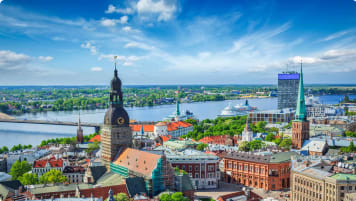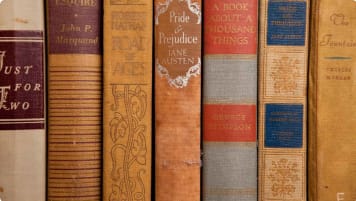Cooking, and eating French: 10 of the best books for travellers
Discovering French food France’s distinctive culinary tradition is among the most respected in the world. No trip to France will remain untouched by the wonders of French gastronomy. Whether you are tucked into a quiet…
6 Oct 17 · 2 mins read
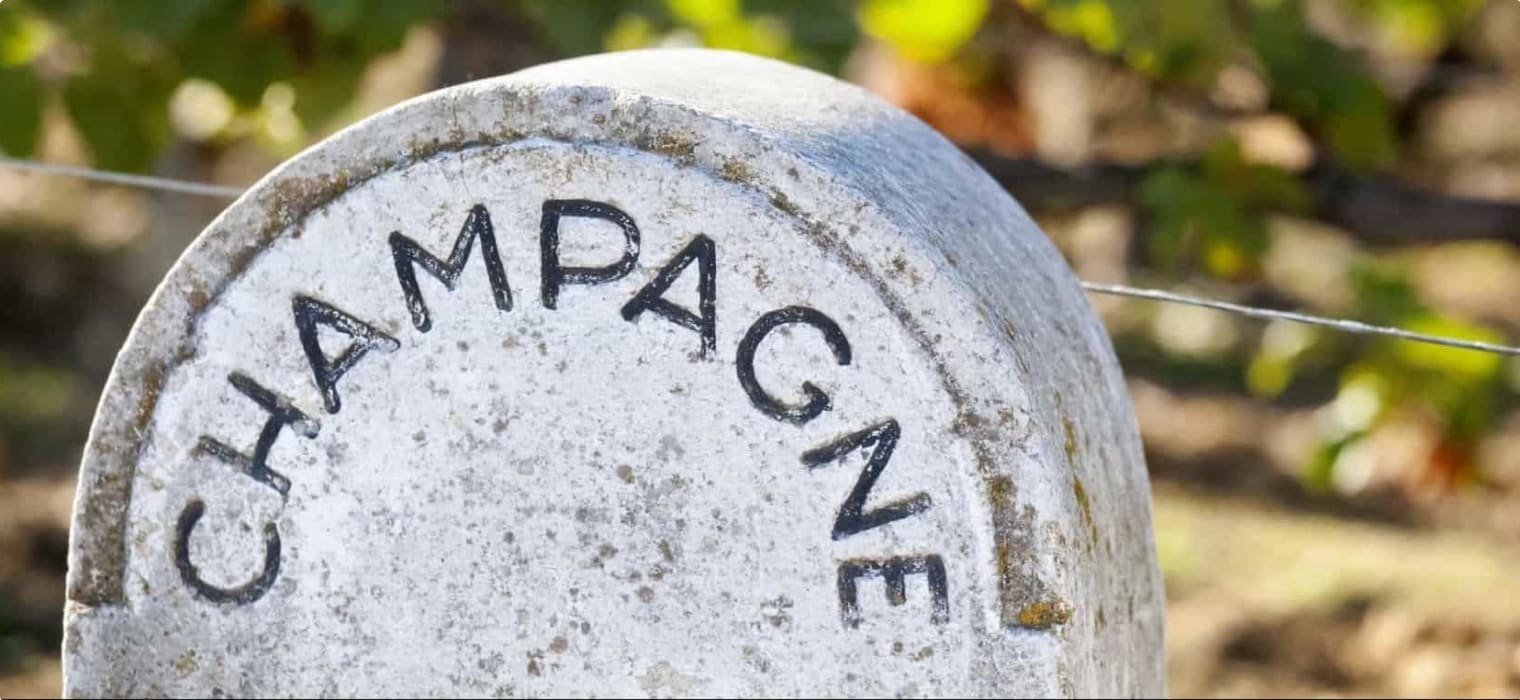
Discovering French food
France’s distinctive culinary tradition is among the most respected in the world. No trip to France will remain untouched by the wonders of French gastronomy. Whether you are tucked into a quiet cafe, taking time out from the bustling streets of Paris, or journeying through the south of France on foot, you are sure to be impressed by French cuisine. Once it comes time to return home, the tastes of a country’s food become one of our strongest memories, lingering for years to come. Another sip of French champagne and you can be transported back to the rolling hills and evocative cellars of Epernay.
Authors have long sought to capture the distinct quality of the French eating experience. This is Odyssey’s list of ten great books on French cooking, and eating in France. Please feel welcome to contribute to the comments section at the bottom of page. We appreciate any feedback on books listed, or further suggestions that will help travellers prepare for a memorable travel experience.
My Life in France
by Julia Child and Alex Prud’homme
The bestselling story of Julia’s years in France—and the basis for Julie & Julia, starring Meryl Streep and Amy Adams—in her own words.
Although she would later single-handedly create a new approach to American cuisine with her cookbook Mastering the Art of French Cooking and her television show The French Chef, Julia Child was not always a master chef. Indeed, when she first arrived in France in 1948 with her husband, Paul, who was to work for the USIS, she spoke no French and knew nothing about the country itself. But as she dove into French culture, buying food at local markets and taking classes at the Cordon Bleu, her life changed forever with her newfound passion for cooking and teaching. Julia’s unforgettable story—struggles with the head of the Cordon Bleu, rejections from publishers to whom she sent her now-famous cookbook, a wonderful, nearly fifty-year long marriage that took the Childs across the globe—unfolds with the spirit so key to Julia’s success as a chef and a writer, brilliantly capturing one of America’s most endearing personalities.
Mastering the Art of French Eating: From Paris Bistros to Farmhouse Kitchens, Lessons in Food and Love
by Ann Mah
The memoir of a young diplomat’s wife who must reinvent her dream of living in Paris—one dish at a time
When journalist Ann Mah’s diplomat husband is given a three-year assignment in Paris, Ann is overjoyed. A lifelong foodie and Francophile, she immediately begins plotting gastronomic adventures à deux. Then her husband is called away to Iraq on a year-long post—alone. Suddenly, Ann’s vision of a romantic sojourn in the City of Lights is turned upside down.
So, not unlike another diplomatic wife, Julia Child, Ann must find a life for herself in a new city. Journeying through Paris and the surrounding regions of France, Ann combats her loneliness by seeking out the perfect pain au chocolat and learning the way the andouillette sausage is really made. She explores the history and taste of everything from boeuf Bourguignon to soupe au pistou to the crispiest of buckwheat crepes. And somewhere between Paris and the south of France, she uncovers a few of life’s truths.
Like Sarah Turnbull’s Almost French and Julie Powell’s New York Times bestseller Julie and Julia,Mastering the Art of French Eating is interwoven with the lively characters Ann meets and the traditional recipes she samples. Both funny and intelligent, this is a story about love—of food, family, and France.
Sixty Million Frenchmen Can't Be Wrong
A Food Lover's Pilgrimage to France: From the Vineyards of Burgundy to the Mountains of the Basque Country: Food, Wine, Walking and History on the French Pilgrim Paths to Santiago de Compostela
by Dee Nolan
From the author of the award-winning A Food Lover’s Pilgrimage to Santiago de Compostela
Most of the early pilgrims were French and now Dee retraces their steps, seeking out the ancient paths through France. Dee’s French pilgrimage winds through magnificent and changing landscapes: from Burgundy’s vine-covered slopes to the gastronomic capital of Lyon; up onto the vast windswept meadows of the Aubrac plateau; along the dramatic Lot river; through the gentle hills of Gascony and, finally, to the trout-filled rivers of the Pyrenees. She meets the monks whose medieval predecessors planted the vineyards we see today, visits local markets with some of France’s greatest chefs, cooks traditional recipes in home kitchens, and walks with farmers taking cattle to the high pasture.
A Revolution in Taste: The Rise of French Cuisine, 1650-1800
by Susan Pinkard
Modern French habits of cooking, eating, and drinking were born in the Ancien Regime, radically breaking with culinary traditions that originated in antiquity and creating a new aesthetic. This new culinary culture saw food and wine as important links between human beings and nature. Authentic foodstuffs and simple preparations became the hallmarks of the modern style. Pinkard traces the roots and development of this culinary revolution to many different historical trends, including changes in material culture, social transformations, medical theory and practice, and the Enlightenment. Pinkard illuminates the complex cultural meaning of food in her history of the new French cooking from its origins in the 1650s through the emergence of cuisine bourgeoise and the original nouvelle cuisine in the decades before 1789. This book also discusses the evolution of culinary techniques and includes historical recipes adapted for today’s kitchens.
Caroline Weber reviewed this book for the the New York Times. Search Google to hear her thoughts.
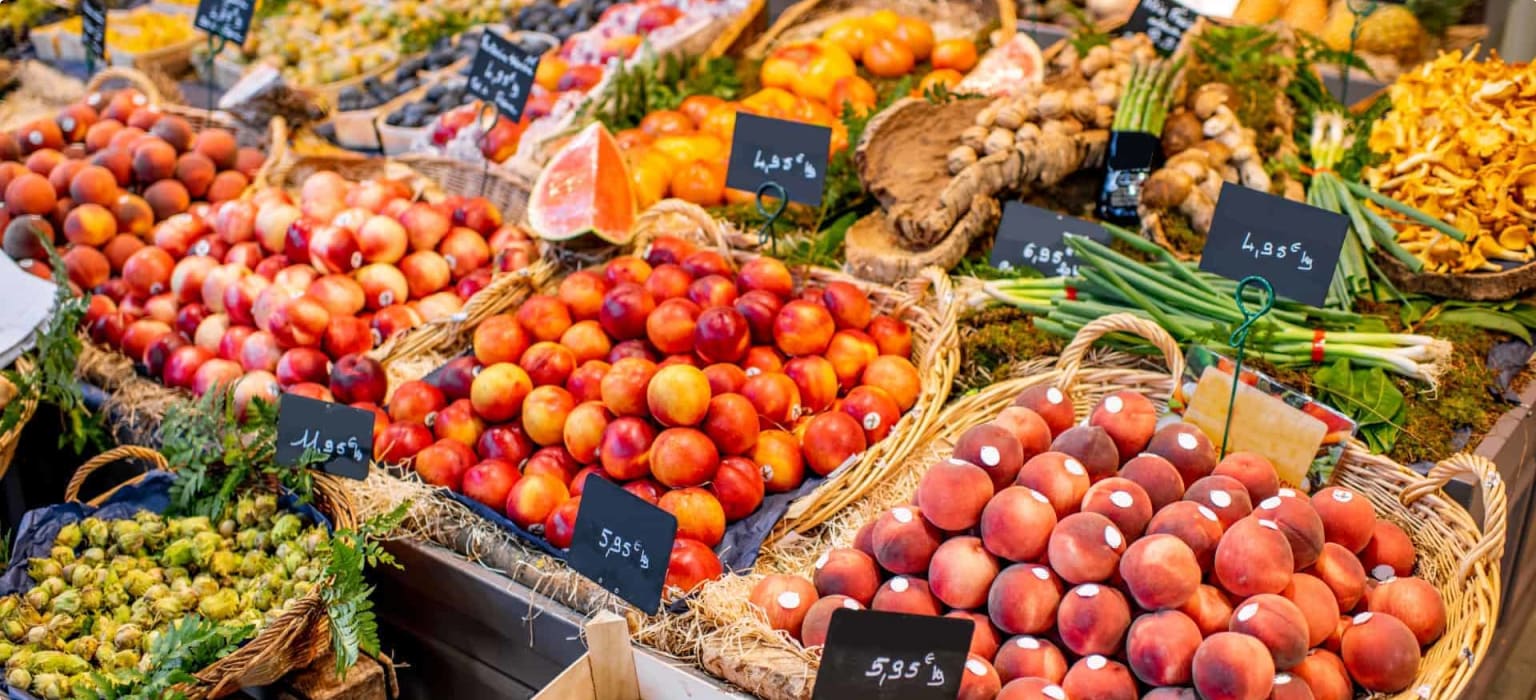
Accounting for Taste: The Triumph of French Cuisine
by Priscilla Parkhurst Ferguson
French cuisine is such a staple in our understanding of fine food that we forget the accidents of history that led to its creation. Accounting for Taste brings these “accidents” to the surface, illuminating the magic of French cuisine and the mystery behind its historical development. Priscilla Parkhurst Ferguson explains how the food of France became French cuisine.
This momentous culinary journey begins with Ancien Régime cookbooks and ends with twenty-first-century cooking programs. It takes us from Carême, the “inventor” of modern French cuisine in the early nineteenth century, to top chefs today, such as Daniel Boulud and Jacques Pépin. Not a history of French cuisine, Accounting for Taste focuses on the people, places, and institutions that have made this cuisine what it is today: a privileged vehicle for national identity, a model of cultural ascendancy, and a pivotal site where practice and performance intersect. With sources as various as the novels of Balzac and Proust, interviews with contemporary chefs such as David Bouley and Charlie Trotter, and the film Babette’s Feast, Ferguson maps the cultural field that structures culinary affairs in France and then exports its crucial ingredients. What’s more, well beyond food, the intricate connections between cuisine and country, between local practice and national identity, illuminate the concept of culture itself.
To Brillat-Savarin’s famous dictum—”Animals fill themselves, people eat, intelligent people alone know how to eat”—Priscilla Ferguson adds, and Accounting for Taste shows, how the truly intelligent also know why they eat the way they do.
“Parkhurst Ferguson has her nose in the right place, and an infectious lust for her subject that makes this trawl through the history and cultural significance of French food—from French Revolution to Babette’s Feast via Balzac’s suppers and Proust’s madeleines—a satisfying meal of varied courses.”—Ian Kelly, Times (UK)
My Paris Kitchen: Recipes and Stories
by David Lebovitz
In 2004, David Lebovitz packed up his most treasured cookbooks, a well-worn cast-iron skillet, and his laptop and moved to Paris. In that time, the culinary culture of France has shifted as a new generation of chefs and home cooks—most notably in Paris—incorporates ingredients and techniques from around the world into traditional French dishes.
In My Paris Kitchen, David remasters the classics, introduces lesser-known fare, and presents 100 sweet and savory recipes that reflect the way modern Parisians eat today. You’ll find Soupe à l’oignon, Cassoulet, Coq au vin, and Croque-monsieur, as well as Smoky barbecue-style pork, Lamb shank tagine, Dukkah-roasted cauliflower, Salt cod fritters with tartar sauce, and Wheat berry salad with radicchio, root vegetables, and pomegranate. And of course, there’s dessert: Warm chocolate cake with salted butter caramel sauce, Duck fat cookies, Bay leaf poundcake with orange glaze, French cheesecake…and the list goes on. David also shares stories told with his trademark wit and humor, and lush photography taken on location around Paris and in David’s kitchen reveals the quirks, trials, beauty, and joys of life in the culinary capital of the world.
Readers describe this book as transporting them straight to Paris. Read customer reviews of My Paris Kitchen here.
French Gastronomy: The History and Geography of a Passion
by Jean-Robert Pitte
This we can be sure of: when a restaurant in the western world is famous for its cooking, it is the tricolor flag that hangs above the stove, opined one French magazine, and this is by no means an isolated example of such crowing. Indeed, both linguistically and conceptually, the restaurant itself is a French creation. Why are the French recognized by themselves and others the world over as the most enlightened of eaters, as the great gourmets? Why did the passion for food―gastronomy―originate in France? In French Gastronomy, geographer and food lover Jean-Robert Pitte uncovers a novel answer. The key, it turns out, is France herself. In her climate, diversity of soils, abundant resources, and varied topography lie the roots of France’s food fame.
Pitte masterfully reveals the ways in which cultural phenomena surrounding food and eating in France relate to space and place. He points out that France has some six hundred regions, or microclimates, that allow different agricultures, to flourish, and fully navigable river systems leading from peripheral farmlands directly to markets in the great gastronomic centers of Paris and Lyon. With an eye to this landscape, Pitte wonders: Would the great French burgundies enjoy such prestige if the coast they came from were not situated close to the ancient capital for the dukes and a major travel route for medieval Europe?
Yet for all the shaping influence of earth and climate, Pitte demonstrates that haute cuisine, like so much that is great about France, can be traced back to the court of Louis XIV. It was the Sun King’s regal gourmandise―he enacted a nightly theatre of eating, dining alone but in full view of the court―that made food and fine dining a central affair of state. The Catholic Church figures prominently as well: gluttony was regarded as a “benign sin” in France, and eating well was associated with praising God, fraternal conviviality, and a respect for the body. These cultural ingredients, in combination with the bounties of the land, contributed to the full flowering of French foodways.
This is a time of paradox for French gourmandism. Never has there been so much literature published on the subject of culinary creativity, never has there been so much talk about good food, and never has so little cooking been done at home. Each day new fast-food places open. Will French cuisine lose its charm and its soul? Will discourse become a substitute for reality? French Gastronomy is a delightful celebration of what makes France unique, and a call to everyone who loves French food to rediscover its full flavor.
Savoring the Past: The French Kitchen and Table from 1300 to 1789
by Barbara Ketcham Wheaton
In this masterful and charming book, food historian Barbara Ketcham Wheaton takes the reader on a cultural and gastronomical tour of France, from its medieval age to the pre-Revolutionary era. Using a delightful combination of personal correspondence, historical anecdotes, and journal entries, Wheaton effortlessly brings to life the history of the French kitchen and table.
French Provincial Cooking
by Elizabeth David
First published in 1962, Elizabeth David’s culinary odyssey through provincial France forever changed the way we think about food. With elegant simplicity, David explores the authentic flavors and textures of time-honored cuisines from such provinces as Alsace, Provence, Brittany, and the Savoie. Full of cooking ideas and recipes, French Provincial Cooking is a scholarly yet straightforward celebration of the traditions of French regional cooking.
For more than seventy years, Penguin has been the leading publisher of classic literature in the English-speaking world. With more than 1,700 titles, Penguin Classics represents a global bookshelf of the best works throughout history and across genres and disciplines. Readers trust the series to provide authoritative texts enhanced by introductions and notes by distinguished scholars and contemporary authors, as well as up-to-date translations by award-winning translators.
Small Group Tours France
Odyssey Traveller offers regular escorted small group tours to France each year. This link take you to the Tours of France page. Odyssey has produced a “Country Spotlight” article on France. A more detailed focus on the highlights of France can be found here, with further information for mature and senior travellers interested in French history and culture. We have also written on discovering Paris by rail. Check out the official tourism website for France for more inspiration. And to keep in touch with Odyssey Traveller and receive information on our upcoming tours, please call or send an email. We’d love to hear from you!
Related Tours
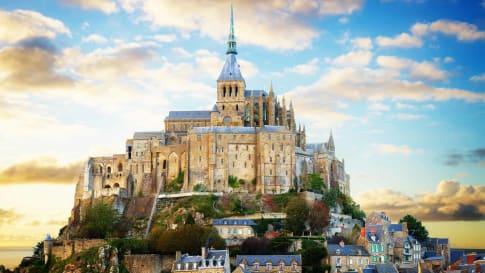
22 days
Apr, May, SepAnglo French Tour | Normandy, Brittany, Channel Islands tour
Visiting Channel Islands, England
Our 21 night program has daily itineraries with plenty of authentic experiences provided by passionate local guides in the key destinations in France, Channel Islands and England for this small group of like minded people. For Solo travellers minimal single supplement applies for this European tour.
From A$18,995 AUD
View Tour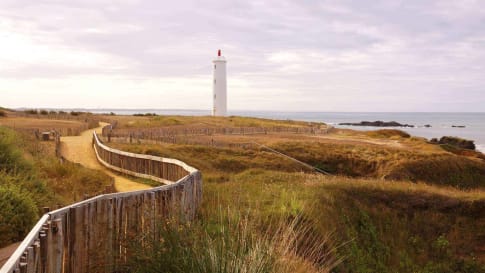
21 days
Jun, Sep, JulFrance on Foot | Small Group Walking Tours France
Visiting France
Our France on Foot small group walking is designed for the active walker and extends from the scenic island of Noirmoutier on the Atlantic Coast via the Massif Central on the borders of Limousin and the Auvergne to the snow-tipped peaks of the Alps in Savoy.
From A$19,345 AUD
View Tour
24 days
Sep, AprLa Belle France small group escorted history tours for seniors
Visiting France
Travelling with like minded people on this small group we visit several culturally significant and picturesque regions of France, including Provence, Champagne, Burgundy, and Bordeaux regions, where we sample wine and learn more about the tradition of wine-making. We also visit the Loire Valley to see its many castles. Finally, we travel to Bayeux, from where we we visit Mont St Michel and spend time up on the Normandy landing beaches with local guides.
From A$19,965 AUD
View Tour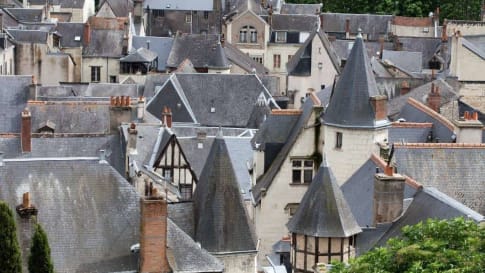
18 days
Jun, SepLoire Valley Walking Tours | Small Group Tours of France
Visiting France
The Loire Valley is the largest of all the UNESCO World Heritage sites. This small group walking tour daily itineraries cross a multitude of historic towns and villages providing authentic experiences for couples and single travellers to enjoy. A small single supplement applies to solo travelers.
From A$13,365 AUD
View Tour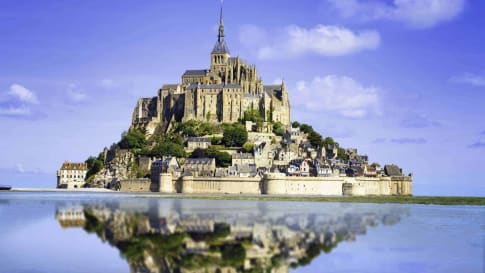
22 days
Aug, May, Apr, SepNormandy and Brittany escorted history tours for small mature grups
Visiting France
This small group tour for couples and solo travellers is centred on the North West corner of France: Normandy, where the peaceful landscape belies a turbulent past; Brittany, where a strongly separate Celtic culture is still evident; Poitou, famous for its rich farmlands and historic ports; and the Loire Valley, replete with royal châteaux.
From A$15,895 AUD
View Tour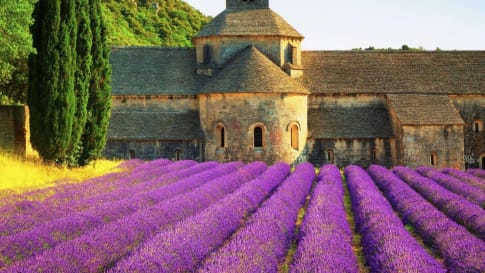
23 days
Sep, MayProvincial France | Small Group Tour for Seniors
Visiting France, Switzerland
This small group program explores the remote mountain plateaux, perched villages and dramatic gorges as well as the Mediterranean coastline.Travel with like-minded people on this tour especially designed for the mature traveller. The villages of Alsace provide an introduction to the diversity which is France. In Burgundy we explore the local villages. Then onto the Jura Mountains, a region rarely visited by tourists. Finally, Provence and the Côte d’Azur, regions of inspiration for artists such as Van Gogh, Cézanne and Picasso.
From A$17,215 AUD
View Tour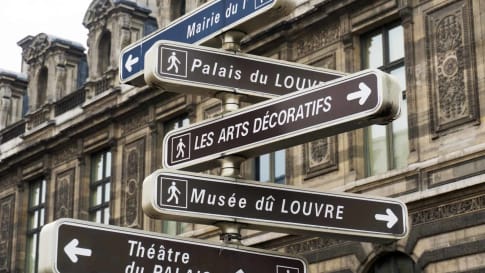
21 days
Mar, SepExplore Paris | 21-day Small Group Tour Exploring Parisian Life
Visiting France
On this small group tour of Paris, travellers take the time to join local guides to learn about the destinations within this city. Authentic experiences with like minded people and an Odyssey tour leader. Staying in apartments this European tour immerses itself in Paris' history, art, and culture in the city of light.
From A$15,325 AUD
View Tour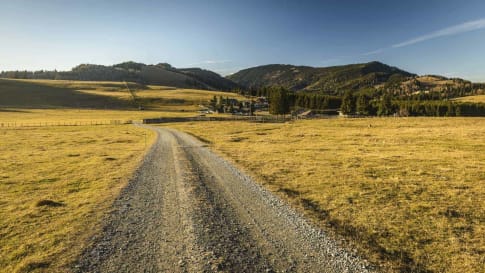
25 days
Sep, May, Apr, OctSecret France | Small group tours France | Places of cultural interest for seniors
Visiting France
Our small group tour designed with the mature traveller in mind, gives you the chance to see eight different locations over 25 days while experiencing local culture, trying regional cuisine, exploring breathtaking architecture and admiring beautiful scenery. From Zurich the tour will move south towards Sare before returning north to Paris where the tour finishes, for a significant part of our journey we will be following old pilgrim pathways, taking the group deep into the villages, valleys, shrines and ski resorts.
From A$17,995 AUD
View Tour